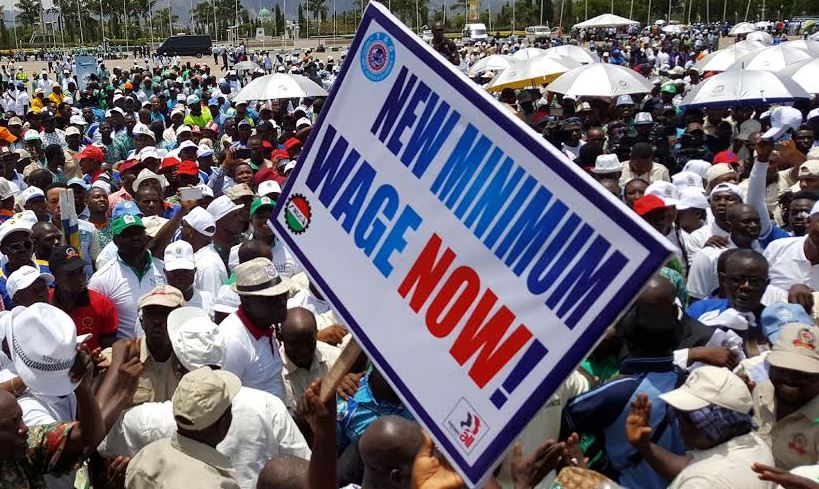The Federal Government, through the National Salaries, Incomes, and Wages Commission (NSIWC), has announced that the implementation of the new minimum wage will begin in July 2024.
The NSIWC Chairman, Ekpo Nta, disclosed this during a press briefing on Tuesday in Abuja.
According to Nta, the decision is based on the date the President signed the bill into law, following its passage by the National Assembly. This clarification contradicts an earlier statement by the Minister of State for Labour, Nkiruka Onyejeocha, who had announced that the new wage would be effective from May 1, 2024.
The implication of this decision is that the government will only be required to pay two months of arrears if payment begins by the end of October.
Additionally, Nta announced the approval of a revision to the Consolidated Public Service Salary Structure, alongside adjustments to other salary structures.
Last week, the Committee on Consequential Adjustments in Salaries for civil servants finalized the new minimum wage template and set the effective date for implementation as July 29, 2024. The committee also recommended that the wage award, previously halted by the government, be paid until July 28, 2024.
The committee, headed by the Head of Civil Service of the Federation, Didi Walson-Jack, acknowledged that the government’s decision was informed by the current economic situation in the country.
However, the Nigerian Labour Congress (NLC) and the Trade Union Congress (TUC) have criticized the government’s decision. The NLC’s Head of Information, Benson Upah, described the backdating of the new wage implementation to July as “unacceptable.” Similarly, the TUC’s National Vice President, Timmy Etim, argued that the government’s change in stance, after the May 1 announcement, was unfair to workers.
In response to the criticism, the NSIWC chairman explained that the President’s assent to the wage bill on July 29, 2024, was the official date for implementation. Nta further advised any federal public service, whether self-funded or treasury-funded, that had not received a circular on the new wage to contact the NSIWC for clarification to avoid discrepancies in implementation.
The commission is expected to provide further directives on how pensioners, NYSC members, and interns will benefit from the new wage structure.
Nta also listed several revised templates under the new salary structure, including the Consolidated Research and Allied Institutions Salary Structure, the Consolidated Universities Academic Salary Structure, and the Consolidated Tertiary Institutions Salary Structure II.
Other salary structures to be revised include those for polytechnics, medical personnel, health workers, paramilitary forces, police, intelligence agencies, and the armed forces.
Nta concluded by noting that these revisions stem from the enactment of the NSIWC Amendment Act 2024, and the Memorandum of Understanding reached by the Federal Government and trade unions in September.



